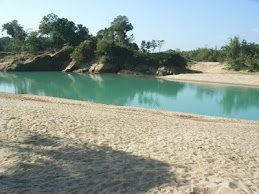Myth #1. Acne is caused by stress.
Stress doesn't cause acne, but it can sometimes make acne worse. Stress can cause your glands to produce more oil, which can lead to a breakout.
Myth #2. Acne is caused by diet.
Extensive research has not found a connection between diet and acne. Food - even French fries, chocolate and pizza - doesn't cause acne. Eating greasy foods doesn't make your glands put out more oil.
Myth #3. Birth control pills can cause acne.
Sometimes, birth control pills can make acne worse in the first few months of taking them. But some birth control pills are even recommended to improve acne. Acne may get worse after the pill is stopped.
Myth #4. Acne is caused by poor hygiene.
Acne isn't caused by dirt or surface oil. It's caused by a process happening inside the body.
Myth #5. Tanning will help clear up acne.
Tanning does not help clear up acne. In fact, some acne treatments make your skin more sensitive to UV light. And tanning increases your risk of skin cancer. Avoid sunlamps and tanning booths, and use sun protection when you're outdoors.
Myth #6. Acne just has to run its course.
The truth is, acne can be cleared up. If over-the-counter products don't work, see your doctor. There are good treatments that can help you beat the zits and avoid scars.
The truth about acne
No one knows exactly what causes acne. But it has something to do with hormones. Acne usually develops when the body's production of hormones called androgens kick into high gear during the teenage years.
Androgens stimulate the sebaceous glands, which produce an oily substance called sebum. Too much sebum can block the openings of the glands and form a plug.
* If the plug stays below the skin's surface and is light in color, it's a whitehead.
* If the plug enlarges and pops out with a darkened tip, it's a blackhead.
* If it's red, swollen and pus-filled, it's a pimple.
* If the plugs are large, red and painful, they're called cysts (if they have pus) or nodules (if they're solid). Cystic or nodular acne is a severe type and is more likely to cause scarring.
Young men produce more androgen than girls. So, they are more likely than young women to have more severe, longer-lasting forms of acne .
Treating acne
The treatment for teenage acne depends on how severe it is. For mild acne, wash your face twice a day with a mild soap, and pat dry. Apply an over-the-counter acne cream that contains benzoyl peroxide or salicylic acid.
Many teens can manage their acne with over-the-counter treatments. But about four out of 10 teens get moderate to severe acne, which may need to be treated by a doctor.
For more severe acne, a doctor may prescribe antibiotics, birth control pills, corticosteroids or vitamin A derivatives (retinoids). One vitamin A derivative, Accutane (isotretinoin), is approved for treating severe acne when other treatments haven't helped. It's very effective, but it's used as a last resort because it has serious risks.
Good skin care is always important when you have acne.
* Wash your skin gently. Vigorous washing and scrubbing can irritate the skin and make acne worse.
* Do not squeeze or pop pimples. This could cause infection and scars.
* Use skin products labeled "noncomedogenic." This means they're less likely to clog your pores.
* Use acne treatments as directed, and be patient. It may take six to eight weeks to see results.
Friday, December 5, 2008
Subscribe to:
Post Comments (Atom)

No comments:
Post a Comment